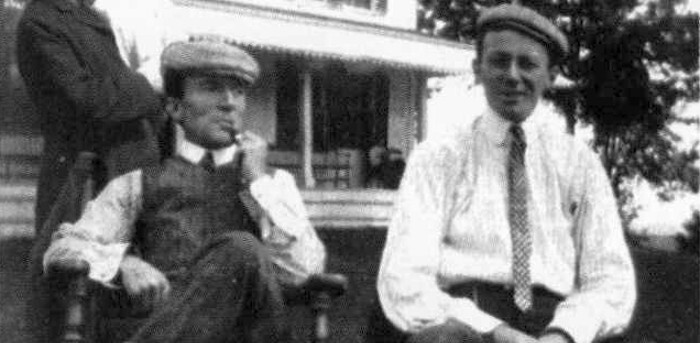The Socialist and Thieving History of Monopoly

Monopoly has a unique place of dishonor in the family board game cupboard. It takes forever, there’s only one dog, and it’s definitely destroyed more than a few relationships because it requires you to act like a ruthless capitalist (and also fight over who gets to be the dog). It turns out, however, that that’s not just an unpleasant side effect but the whole point of the game. It was entirely designed to teach you how bad capitalism is -- until it became a victim of capitalism itself.
It All Started With One Weird Lady

The story of Monopoly begins with Elizabeth Magie, an unmarried artist, writer, poet, actor, comedian, and amateur engineer. Basically, a pretty cool lady by today’s standards, but she was lucky not to have been committed to an asylum in the late 19th century.
The Landlord’s Game

In 1903, Magie patented The Landlord’s Game, having apparently decided she didn’t have enough identifiers and needed to add “board game inventor.” It was pretty much the same as Monopoly today, designed intentionally to outrage and frustrate players and illustrate the dangers of, you know, monopolies.
Charles Darrow
Magie’s game became popular in the intellectual enclaves of the Northeast, but her patent didn’t. Many players took it upon themselves to create their own versions of the game, including friends of Charles Darrow. In the great tradition of capitalism, he played the game and then decided he’d invented it.
Parker Brothers

Darrow tried to sell the game to Parker Brothers in the early ‘30s, but they actually turned him down at first, concluding that it contained “52 fundamental errors,” including the length of play, the overly complicated rules, and the lack of any kind of point. They were certain no one would want to play a game clearly developed by some kind of vengeance demon, so Darrow just distributed it himself until it became so successful that the company agreed to pay him millions in royalties. (Magie, once her patent was revealed, was paid $500.)
Changing the Game
The Landlord’s Game had two sets of rules: the one we all know and begrudge, but also an alternate version in which everyone gets paid when wealth is created. It gave a pretty clear message to players about which economic system was superior, but by the time Monopoly went nationwide, that set of rules vanished, and so did Magie’s point. She simply underestimated the American horniness for conflict.
Stiffed By Rich Uncle Pennybags

The Monopoly man, A.K.A. Rich Uncle Pennybags, began appearing on board game boxes in 1936, much to the consternation of monocle enthusiasts and political cartoonist Franklin Alexander. Parker Brothers had tapped Alexander to create several characters for them, including Mr. Pennybags, then took a card from their own game and never paid him.
Nazi Monopoly

(Bundesarchiv, Bild 102-17049/Georg Pahl/CC-BY-SA 3.0/Wikimedia Commons)
Monopoly soon went worldwide, with boards modified to represent major cities in different countries, and it had strayed so far from its socialist roots that it pissed off the Nazis. Joseph Goebbels was apparently dismayed that the board exposed the neighborhoods of Nazi officials as expensive ones, but officially, he reportedly told people the game just seemed kind of Jewish, so the game was suppressed in Germany for nearly 20 years.
Nazi Monopoly, Part Two
You might have heard that tools and maps of escape routes were smuggled inside Monopoly games to prisoners of war in German camps during World War II, but all that can be confirmed is that such packages were sent. No one can say how many (if any) prisoners were actually helped, so Monopoly can possibly add “stolen valor” to its list of sins.
Soviet Monopoly

Naturally, the Soviet Union also banned Monopoly, but they allowed six sets of the game to be displayed during the American National Exhibition in 1959, a sort of pop-up museum where good Soviets could gawk at America’s immoral excesses. It backfired, though, when every set of the game went missing, stolen by visitors who presumably had a great time yelling at their families later.
Champion Cheats
The first Monopoly European Championship ended in scandal in 1973, when John Mair was declared the winner despite the general agreement that he’d made a mistake in the last game. The judges considered starting the game over, but that would have meant missing their flight, so they stuck to their little cannons. Mair went on to become the first World Champion and probably felt really bad about it.
Monopoly v. Anti-Monopoly
In 1974, Parker Brothers sued an economics professor who created a board game called Anti-Monopoly even though it was literally the opposite of their game. The professor argued that Parker Brothers couldn’t trademark what had been a popular folk game before they bought it, but the courts sided with Parker Brothers, essentially granting them a monopoly on Monopoly.
Marvin v. Marven

Indeed, Monopoly relied so much on crowdsourcing that its spelling of “Marvin Gardens” -- which is a real neighborhood in the Atlantic City area, though it’s spelled “Marven” -- was a mistake ported over from old Charles Darrow’s friends’ homemade game board. In 1995, Parker Brothers officially apologized to the people of Marven Gardens for not proofreading their plagiarism.
The McMillions Scandal

Remember peeling those little Monopoly squares off your McDonald’s fries to see if you’d won a car in the late ‘90s? Well, if that’s the last time you thought about it, you’re surprisingly unaware that a security guard for the company who ran the promotion was convicted of fraud for stealing the winning game pieces in a scheme that eventually involved the Colombo crime family. Through technically no fault of their own, Monopoly graduated to organized crime.
Ridley Scott’s Monopoly

In 2008, Hasbro teamed up with Universal Pictures to make a ton of movies based on their games, including an adaptation of Monopoly that would have somehow been directed by Ridley Scott and written by a frequent Tim Burton collaborator. Unfortunately, by 2012, they realized what a ridiculous idea that was, robbing us all of a movie that would have at least been extremely weird.
Unpacking the Community Chest

In 2021, Hasbro announced that it would be updating Monopoly’s Community Chest cards, which previously rewarded players for things like winning “second place in a beauty contest,” to reflect modern values, like supporting charity and recycling. To be clear, it’s still a game about bankrupting innocent people with the unfeeling invisible hand of the free market. But now, those people can be ugly.
Top image: Joshua Hoehne/Unsplash